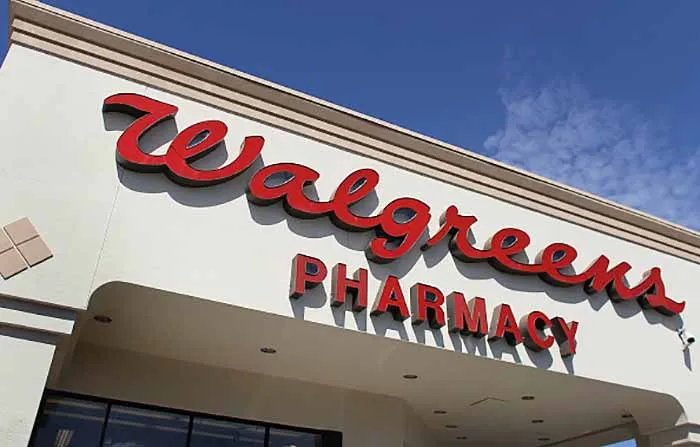
Photo: Joe Raedle/Getty Images
Walgreens Boots Alliance has agreed to pay up to $350 million to resolve allegations that its pharmacies filled millions of invalid prescriptions for opioids and other controlled substances.
The Department of Justice claims that Walgreens sought payment for invalid prescriptions through Medicare and other federal healthcare programs in violation of the False Claims Act.
The claims are allegations only, and there has been no determination of liability, the DOJ said.
The settlement amount is based on Walgreens' ability to pay. In March, Walgreens reported significant debt in announcing it would be acquired by private equity firm Sycamore Partners, in a deal valued at $23.7 billion.
If Walgreens is sold, merged or transferred prior to 2032, it would owe the United States an additional $50 million, the DOJ said.
The Justice Department, the Drug Enforcement Administration and Department of Health and Human Services Office of Inspector General announced the $300 million settlement with Walgreens Boots Alliance and subsidiaries on Monday.
The civil settlement resolves four cases brought by former Walgreens employees under whistleblower provisions. The whistleblowers will receive a 17.25% share of the government's recovery.
WHY THIS MATTERS
The government's complaint, filed on Jan. 16 and amended April 18 in the U.S. District Court for the Northern District of Illinois, alleges that from approximately August 2012 through March 1, 2023, Walgreens knowingly filled millions of unlawful controlled substance prescriptions.
These unlawful prescriptions included those for excessive quantities of opioids, opioid prescriptions filled significantly early and prescriptions for the especially dangerous and abused combination of three drugs known as a "trinity," according to the DOJ. Walgreens pharmacists allegedly filled these prescriptions despite clear "red flags" indicating a high likelihood that the prescriptions were invalid because they lacked a legitimate medical purpose or were not issued in the usual course of professional practice, the DOJ said.
The complaint further alleged that Walgreens pressured its pharmacists to fill prescriptions quickly and without taking the time needed to confirm that each prescription was lawful. Walgreens' compliance officials also allegedly ignored substantial evidence that its stores were dispensing unlawful prescriptions and even intentionally deprived its own pharmacists of crucial information, including by refusing to share internal data regarding prescribers with pharmacists and preventing pharmacists from warning one another about certain problematic prescribers.
A complaint filed by the United States against Walgreens is being dismissed. Walgreens is also moving to dismiss a related declaratory judgment action filed in U.S. District Court for the Eastern District of Texas.
Walgreens has agreed to enter into agreements with DEA and HHS-OIG to address its future obligations in dispensing controlled substances. Walgreens and DEA entered into a memorandum of agreement that requires the company to implement and maintain certain compliance measures for the next seven years.
Walgreens has also entered into a five-year corporate integrity agreement with HHS-OIG, which further requires Walgreens to establish and maintain a compliance program that includes written policies and procedures, training, board oversight and periodic reporting to HHS-OIG related to Walgreens's dispensing of controlled substances.
THE LARGER TREND
In January, the Department of Justice filed a lawsuit against Walgreens Boots Alliance and its subsidiaries for allegedly dispensing millions of unlawful prescriptions in violation of the Controlled Substances Act.
In 2022, CVS Health and Walgreens Boots Alliance announced an agreement to pay $10 billion to substantially resolve all opioid lawsuits and claims against the companies.
CVS Health agreed to pay approximately $5 billion ($4.9 billion to states and political subdivisions, and approximately $130 million to tribes) over the next 10 years.
Walgreens said it also expected to settle all opioid claims against it by participating states, subdivisions and tribes, for up to approximately $4.95 billion in remediation payments to be paid out over 15 years.
ON THE RECORD
"Pharmacies have a legal responsibility to prescribe controlled substances in a safe and professional manner, not dispense dangerous drugs just for profit," Attorney General Pamela Bondi said. "This Department of Justice is committed to ending the opioid crisis and holding bad actors accountable for their failure to protect patients from addiction."
Email the writer: SMorse@himss.org